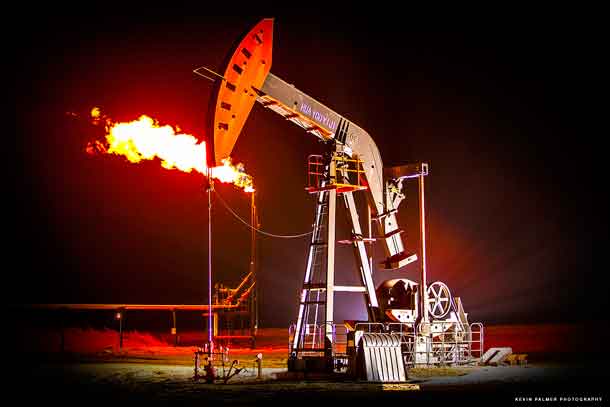
“That would look small relative to the 40 per cent drop in 2009, which occurred alongside an oil price decline of close to 38 per cent in U.S. dollar terms; however, it is likely that the financial crisis and credit crunch, which forced all businesses to cut back on spending to preserve cash, had more to do with that earlier investment decline than the price of oil alone”.
Falling Oil Price a Double Edged Sword
THUNDER BAY – BUSINESS – The falling price of oil is starting to impact Fort MacMurray, and it is likely to impact the Canadian Oilpatch harder than perhaps other countries. While many are watching the benchmark price of a barrel of West Texas Intermediate (WTI) it is the price of Western Canadian Select (WCS) that is hitting hard on Canada’s economy.
The price of Western Canadian Select has closed at $37.18 US. Experts report that the average cost of production for a barrel of that oil is about $44.00. The economics of production mean at the current prices, that it is too expensive to produce the oil.
Canada is looking to sell oil to China and to the United States, the current market price is going to likely slow if not halt some of the work toward building the Northern Gateway pipeline.
Calgary Chamber of Commerce Concerned
Adam Legge, the President and Chief Executive of the Calgary Chamber of Commerce, is not sure that Canadian exports and manufacturing will ramp up enough to offset the broad-based impact of the energy decline.
“This is not just an Alberta problem,” states Legge. “This is a Canada-wide problem because we now have more diversified energy assets across the country. While the head office base is here, there are jobs all across the country tied directly and indirectly to energy that will feel the pain.”
In December, RBC Economics was still bullish on the Alberta economy. “After outpacing the rest of the provinces in 2014, Alberta’s economy is expected to grow at a slower rate in 2015 due in large part to the effects of the drop in oil prices, according to the latest Provincial Outlook report released today. RBC revised its 2015 real GDP forecast for the province to 2.7 per cent from 3.5 per cent previously. RBC believes this deceleration will continue into 2016 when a 2.3 per cent growth rate is projected for Alberta”.
“We expect that the persistence of significantly lower oil prices will temper Alberta’s economic boom in the period ahead,” said Craig Wright, senior vice-president and chief economist, RBC. “Both private and public incomes will face headwinds. Still, we expect the provincial economy to expand at the same 2.7 per cent rate as the national economy in 2015, which will remain quite respectable.”
That prediction was based on oil at $70 per barrel.
Now, in 2015 with the price of oil at $50 per barrel, RBC Economic states, “RBC has assumed on an annual average basis, could lead to a reduction in business investment of three per cent in that sector.
“That would look small relative to the 40 per cent drop in 2009, which occurred alongside an oil price decline of close to 38 per cent in U.S. dollar terms; however, it is likely that the financial crisis and credit crunch, which forced all businesses to cut back on spending to preserve cash, had more to do with that earlier investment decline than the price of oil alone”.
The overall impact is also a falling Canadian dollar which has been dropping against the United States dollar.
The Keystone Pipeline is likely to face opposition from the Democrats, but the Republicans have taken control of the Senate and House. It places the pressure on President Obama.
While the short-term benefit at the gas pumps are being celebrated, the downturn in oil prices over the longer term is likely to have an impact here in Ontario.
Consumers in Alberta and Saskatchewan who have been making good salaries in the Oil Patch are likely, if they feel they could be facing layoffs, suspend their consumer spending and start either savings, or paying down debt.
On January 5, 2015 the price of a barrel of oil continued to fall.
The benefits of the lower gasoline prices continue for consumers, and for business. In Thunder Bay, it is likely that the savings on fuel prices for the city will help ease pressure on city taxes.







